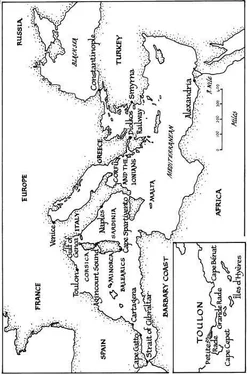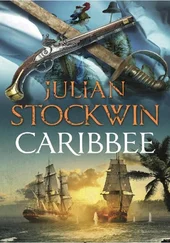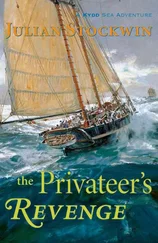Julian Stockwin - Victory
Здесь есть возможность читать онлайн «Julian Stockwin - Victory» весь текст электронной книги совершенно бесплатно (целиком полную версию без сокращений). В некоторых случаях можно слушать аудио, скачать через торрент в формате fb2 и присутствует краткое содержание. Жанр: Старинная литература, на английском языке. Описание произведения, (предисловие) а так же отзывы посетителей доступны на портале библиотеки ЛибКат.
- Название:Victory
- Автор:
- Жанр:
- Год:неизвестен
- ISBN:нет данных
- Рейтинг книги:4 / 5. Голосов: 1
-
Избранное:Добавить в избранное
- Отзывы:
-
Ваша оценка:
- 80
- 1
- 2
- 3
- 4
- 5
Victory: краткое содержание, описание и аннотация
Предлагаем к чтению аннотацию, описание, краткое содержание или предисловие (зависит от того, что написал сам автор книги «Victory»). Если вы не нашли необходимую информацию о книге — напишите в комментариях, мы постараемся отыскать её.
Victory — читать онлайн бесплатно полную книгу (весь текст) целиком
Ниже представлен текст книги, разбитый по страницам. Система сохранения места последней прочитанной страницы, позволяет с удобством читать онлайн бесплатно книгу «Victory», без необходимости каждый раз заново искать на чём Вы остановились. Поставьте закладку, и сможете в любой момент перейти на страницу, на которой закончили чтение.
Интервал:
Закладка:
A stab of longing pierced him – was it his name she had shouted? Did this mean . . . ?
But, then, it couldn’t be – she would have received the letter of release by now. The hope died.
Two more ships-of-the-line, Ajax and Thunderer , joined the few hove-to off Plymouth and, without delay, the group got under way again. The weather moderated before dusk and a workmanlike north-westerly sent them foaming through the waves.
They sighted the well-known Rock of Lisbon and at dawn the next day Cape St Vincent. L’Aurore was detached to go ahead to reach Admiral Collingwood with orders to refrain from gun salutes when Lord Nelson joined: there was to be no indication to watchers ashore that Collingwood was being reinforced.
L’Aurore raised them cruising some fifteen miles to seaward of the old Spanish port. A beautiful and terrifying sight: sombre lines of battleships – twenty, thirty of them, the most powerful British fleet Kydd had ever seen, more than twice as many as had fought at the Nile, the most fearsome weapon ever wielded by one man.
He passed his message, and when Nelson joined towards evening there were no seventeen-gun salutes, no hoisting of colours, simply a general joy running throughout the fleet.
On the following day, one by one, the captains of the various ships were rowed to Victory and welcomed aboard. ‘Ah, Mr Kydd,’ Nelson said warmly, standing in glittering full-dress at the gold-leafed entry port, ‘do enjoy our little birthday party, sir.’
In the splendour of the admiral’s dining cabin, he found that the birthday was in fact Lord Nelson’s own, his forty-seventh. Remarkably therefore, Kydd realised, Victory must be herself close to fifty years old.
It was an evening to remember: the glitter of crystal and silver on the huge mahogany table, the blaze of gold lace and decorations, and the meeting of men whose names were already famous: Harvey of Temeraire , Fremantle of Neptune , Berry of Agamemnon , Duff of Mars – and the frigate captains: Blackwood of Euryalus , Prowse of Sirius , Dundas of Naiad and more, all standing with a glass and chatting amiably.
When Nelson entered he went up to Fremantle and teasingly held up a letter brought out by him from England. ‘You’re expecting a happy event, sir – what is your desire, a boy or girl?’
‘A girl would gratify, my lord.’
‘Then be content, dear fellow,’ Nelson said, handing it over. ‘And Betsey confides she would be in doubts of your health should we venture past the strait.’
He passed on to other captains and seemed to revel in the warmth and fellowship that filled the cabin. ‘Shall we dine?’ he announced, after a discreet prompt from his steward.
The meal was declared a great success and, mellowed by wine, Kydd relaxed back in his chair as the table was cleared.
Nelson, seated at the centre, called for attention. ‘Now, gentlemen! As is my way I would have you in no doubt as to my strategicals. Let me be plain with you – we are now twenty-nine of-the-line. If the enemy delay, which I doubt, they bid fair to make increase to forty-six, even fifty, while in return it would be foolish of us to expect more than a dozen further.’
There was calm confidence in the faces as he continued: ‘What I seek is not a victory. Not even a glorious triumph. Nothing short of annihilating the enemy will satisfy. All shall be devoted to such an end.’
He had their rapt attention now. ‘My very greatest desire is to entice the enemy from port. Only when he is out in the open sea in his full numbers can I think to destroy him utterly. Therefore my fleet will lie fifty miles to the west and a token force only will remain in view of the port. The motions of the enemy, however, will be communicated to me in every detail by the watching inshore frigates and a line of repeating ships.’
There were nods of agreement: every encouragement was needed to ensure the enemy ventured out and was dealt with once and for all, or the threat would persist for many more months, years even.
‘Now to your battle instructions. Gentlemen, let us assume the enemy ventures out in strength and he forms line-of-battle. No day is too long to arrange our line to be formed to oppose them, supposing we are thirty or forty sail.’
Kydd frowned: at a cable apart – a couple of hundred yards – forty ships amounted to a line six or seven miles long, an impossibly unwieldy thing to manoeuvre by the wind to bring up parallel to the enemy line.
‘Therefore I propose to dispense with the old ways. We shall not form line-of-battle. Instead we will throw our force straight at ’em. Pierce their line and bring on a mêlée as will see our ships at their best.’
A murmur went about the table. Nelson was completely disregarding the hallowed Fighting Instructions issued by the Admiralty, which specified that to confront an enemy line it was necessary to form up in parallel and smash away in broadsides until they yielded.
Breaking the line had been done before, however: Rodney at the Saintes, Duncan at Camperdown, even Nelson himself at St Vincent, but always as a chance opportunity, never as a deliberate plan.
‘This is how it will be accomplished. In the event we approach from the windward there will be two divisions, weather and lee. The weather shall attack ahead of the enemy flag in the centre, the lee on signal will bear up to fall severally upon their rear.
‘The assault will be swift – under full sail to stuns’ls, the order of sailing to be the order for battle – for I wish a victory over the enemy flag and rear before their van are able to reverse their course to succour them. Is this clear?’
There was a hush as the implications of the novel strategy were digested, then admiring gasps as it penetrated. By throwing his fleet at the foe on sight, without the formality of juggling positions to form an opposing line, the enemy line was to be chopped into thirds.
The vanguard was effectively to be isolated from the fight when the line was broken at the centre by the weather division, turning it into a close-range free-for-all. The rear third would be dealt with in detail by the lee division, all before the leading enemy ships had time to put about and come to the aid of the others.
In essence, the stately line-of-battle and its exchanging of broadsides were to be replaced by a brawling, one-on-one fight, which Nelson determined to win.
It was daring, reckless even, for the oncoming British divisions would be under fire from the broadsides of the entire enemy line as they approached without the opportunity to fire back. But when they reached and broke the enemy line . . .
‘A most marvellous plan, sir!’ Keats said, in open admiration.
‘Genius! Nothing less will serve to describe it!’
The comments were fulsome. Nelson’s trust in the resolution and capability of each captain was both tribute and compliment. And at its core – that the battle was to be transformed from a fleet action into a spectacular series of individual combats – the strategy tapped the very spirit of aggression that Nelson had inculcated.
He held up his hand. ‘Something must be left to chance, for nothing is sure in a sea fight. In the smoke and confusion signals may be missed, but this I say to you – no captain can do very wrong if he places his ship alongside that of an enemy.’
‘Pray God they sail, and soon!’ cried Moorsom of Revenge , punching the air.
‘And a leading wind as will see us close aboard ’em before they wake up!’ another added.
Wine circulated again and, glasses charged, Nelson spoke for them all: ‘I trust, gentlemen, in English valour. We are enough in England if true to ourselves!’
Читать дальшеИнтервал:
Закладка:
Похожие книги на «Victory»
Представляем Вашему вниманию похожие книги на «Victory» списком для выбора. Мы отобрали схожую по названию и смыслу литературу в надежде предоставить читателям больше вариантов отыскать новые, интересные, ещё непрочитанные произведения.
Обсуждение, отзывы о книге «Victory» и просто собственные мнения читателей. Оставьте ваши комментарии, напишите, что Вы думаете о произведении, его смысле или главных героях. Укажите что конкретно понравилось, а что нет, и почему Вы так считаете.









